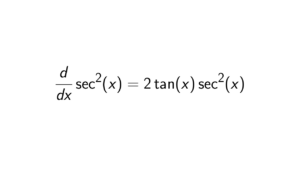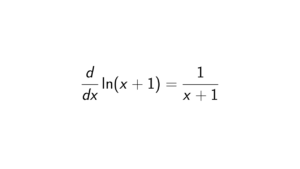Solution. Let F(x) = \text{sech}(x) = \frac{2}{e^x + e^{-x}} where f(u) = \frac{2}{u} and g(x) = e^x + e^{-x} such that F(x) = f(g(x)). To determine the derivative of \text{sech}(x), we will use the chain rule:
\begin{align*}
F'(x) = f'(g(x))g'(x).
\end{align*}\begin{align*}
f'(g(x)) = \frac{-2}{g(x)^2} = \frac{-2}{(e^x + e^{-x})^2}.
\end{align*}\begin{align*}
F'(x) &= f'(g(x))g'(x) \\
&= \frac{-2}{(e^x + e^{-x})^2} \cdot (e^x - e^{-x}) \\
&= -\text{sech}(x)\cdot \frac{e^x - e^{-x}}{e^x + e^{-x}} \\
&= -\text{sech}(x)\text{tanh}(x).
\end{align*}

